How AI is Transforming Software Development?
Last updated: March 19, 2024 Read in fullscreen view
- 05 Oct 2025
 The New Facebook Algorithm: A Paradigm Shift in Content Discovery 66/109
The New Facebook Algorithm: A Paradigm Shift in Content Discovery 66/109 - 13 Oct 2021
 Outsourcing Software Development: MVP, Proof of Concept (POC) and Prototyping. Which is better? 40/486
Outsourcing Software Development: MVP, Proof of Concept (POC) and Prototyping. Which is better? 40/486 - 03 Oct 2025
 Top CMS Trends 2026: The Future of Digital Content Management 37/55
Top CMS Trends 2026: The Future of Digital Content Management 37/55 - 20 Dec 2025
 The Future of IT Consulting: Key Trends for 2026–2030 35/67
The Future of IT Consulting: Key Trends for 2026–2030 35/67 - 12 Oct 2022
 14 Common Reasons Software Projects Fail (And How To Avoid Them) 32/568
14 Common Reasons Software Projects Fail (And How To Avoid Them) 32/568 - 03 Nov 2023
 Why Is Billable Viable Product An Alternative To Minimum Viable Product? 31/200
Why Is Billable Viable Product An Alternative To Minimum Viable Product? 31/200 - 19 Oct 2021
 Software development life cycles 29/701
Software development life cycles 29/701 - 10 Sep 2024
 Leading Remote Teams in Hybrid Work Environments 27/160
Leading Remote Teams in Hybrid Work Environments 27/160 - 11 Oct 2022
 Why choose Billable Viable Product (BVP) over Minimum Viable Product (MVP) 22/361
Why choose Billable Viable Product (BVP) over Minimum Viable Product (MVP) 22/361 - 31 Dec 2025
 10 Skills to Make You "Irreplaceable" in the Next 3 Years (even if AI changes everything) 22/34
10 Skills to Make You "Irreplaceable" in the Next 3 Years (even if AI changes everything) 22/34 - 23 Jun 2025
 AI Avatars in the Metaverse: How Digital Beings Are Redefining Identity and Social Interaction 18/125
AI Avatars in the Metaverse: How Digital Beings Are Redefining Identity and Social Interaction 18/125 - 21 Dec 2023
 Top 12 Low-Code Platforms To Use in 2024 18/1248
Top 12 Low-Code Platforms To Use in 2024 18/1248 - 18 Aug 2024
 The Future of Web Development: Emerging Trends and Technologies Every Developer Should Know 17/201
The Future of Web Development: Emerging Trends and Technologies Every Developer Should Know 17/201 - 05 Sep 2023
 The Cold Start Problem: How to Start and Scale Network Effects 17/203
The Cold Start Problem: How to Start and Scale Network Effects 17/203 - 04 Oct 2021
 Product Validation: The Key to Developing the Best Product Possible 17/320
Product Validation: The Key to Developing the Best Product Possible 17/320 - 07 Oct 2025
 Case Study: Using the “Messaging House” Framework to Build a Digital Transformation Roadmap 17/86
Case Study: Using the “Messaging House” Framework to Build a Digital Transformation Roadmap 17/86 - 22 Nov 2024
 The Role of AI in Enhancing Business Efficiency and Decision-Making 17/196
The Role of AI in Enhancing Business Efficiency and Decision-Making 17/196 - 20 Feb 2025
 How Machine Learning is Shaping the Future of Digital Advertising 16/123
How Machine Learning is Shaping the Future of Digital Advertising 16/123 - 05 Mar 2021
 How do you minimize risks when you outsource software development? 16/336
How do you minimize risks when you outsource software development? 16/336 - 31 Aug 2022
 What are the best practices for software contract negotiations? 16/260
What are the best practices for software contract negotiations? 16/260 - 31 Dec 2022
 The New Normal for Software Development 15/364
The New Normal for Software Development 15/364 - 18 Jul 2024
 The 8 Best ways to Innovate your SAAS Business Model in 2024 15/257
The 8 Best ways to Innovate your SAAS Business Model in 2024 15/257 - 27 Jul 2024
 Positive Psychology in the Digital Age: Future Directions and Technologies 15/408
Positive Psychology in the Digital Age: Future Directions and Technologies 15/408 - 02 Dec 2024
 The Intersection of AI and Business Analytics: Key Concepts to Master in Your Business Analytics Course 15/295
The Intersection of AI and Business Analytics: Key Concepts to Master in Your Business Analytics Course 15/295 - 31 Dec 2023
 Software Development Outsourcing Trends to Watch Out for in 2024 13/233
Software Development Outsourcing Trends to Watch Out for in 2024 13/233 - 28 Jul 2022
 POC, Prototypes, Pilots and MVP: What Are the Differences? 13/697
POC, Prototypes, Pilots and MVP: What Are the Differences? 13/697 - 28 Oct 2022
 Build Operate Transfer (B.O.T) Model in Software Outsourcing 12/405
Build Operate Transfer (B.O.T) Model in Software Outsourcing 12/405 - 09 Oct 2024
 Short-Form Video Advertising: The Secret to Captivating Your Audience 12/134
Short-Form Video Advertising: The Secret to Captivating Your Audience 12/134 - 25 Jan 2025
 The Decline of Traditional SaaS and the Rise of AI-first Applications 12/109
The Decline of Traditional SaaS and the Rise of AI-first Applications 12/109 - 20 Aug 2025
 What Is Agentic AI? The Next Phase of Artificial Intelligence 12/149
What Is Agentic AI? The Next Phase of Artificial Intelligence 12/149 - 10 Sep 2024
 AI in Email Marketing: Personalization and Automation 11/183
AI in Email Marketing: Personalization and Automation 11/183 - 04 Oct 2022
 Which ERP implementation strategy is right for your business? 11/313
Which ERP implementation strategy is right for your business? 11/313 - 16 Sep 2022
 Examples Of Augmented Intelligence In Today’s Workplaces Shaping the Business as Usual 10/436
Examples Of Augmented Intelligence In Today’s Workplaces Shaping the Business as Usual 10/436 - 12 Dec 2021
 Zero Sum Games Agile vs. Waterfall Project Management Methods 10/409
Zero Sum Games Agile vs. Waterfall Project Management Methods 10/409 - 03 Jan 2024
 Why Partnership is important for Growth? 10/159
Why Partnership is important for Growth? 10/159 - 18 Jul 2021
 How To Ramp Up An Offshore Software Development Team Quickly 9/593
How To Ramp Up An Offshore Software Development Team Quickly 9/593 - 16 Aug 2022
 What is a Headless CMS? 8/272
What is a Headless CMS? 8/272 - 06 Mar 2024
 [SemRush] What Are LSI Keywords & Why They Don‘t Matter 7/176
[SemRush] What Are LSI Keywords & Why They Don‘t Matter 7/176 - 25 Sep 2024
 Enhancing Decision-Making Skills with an MBA: Data-Driven Approaches for Business Growth 6/201
Enhancing Decision-Making Skills with an MBA: Data-Driven Approaches for Business Growth 6/201 - 30 Jul 2024
 The Future of IT Consulting: Trends and Opportunities 6/190
The Future of IT Consulting: Trends and Opportunities 6/190 - 12 Aug 2024
 Understanding Google Analytics in Mumbai: A Beginner's Guide 6/99
Understanding Google Analytics in Mumbai: A Beginner's Guide 6/99 - 18 Jan 2024
 Self-healing code is the future of software development 5/213
Self-healing code is the future of software development 5/213 - 31 Dec 2022
 Future of Software Development Trends and Predictions 5/143
Future of Software Development Trends and Predictions 5/143 - 01 Dec 2023
 Laws of Project Management 5/302
Laws of Project Management 5/302 - 15 Aug 2025
 Quantum Technology: Global Challenges and Opportunities for Innovators 4/100
Quantum Technology: Global Challenges and Opportunities for Innovators 4/100 - 27 Feb 2025
 How AI Agents are Changing Software Development? 4/186
How AI Agents are Changing Software Development? 4/186 - 01 May 2024
 Warren Buffett’s Golden Rule for Digital Transformation: Avoiding Tech Overload 3/205
Warren Buffett’s Golden Rule for Digital Transformation: Avoiding Tech Overload 3/205
Artificial Intelligence (AI) has emerged as a disruptive technology with the potential to revolutionize various industries, and software development is no exception. AI is reshaping the way developers approach software creation, making processes more efficient, and enabling the development of more intelligent and user-centric applications. In this blog, we will explore the significant impact of AI on software development and delve into its potential applications across various stages of the development lifecycle.
AI-Powered Requirement Analysis and Planning
The software development process begins with requirement analysis and planning. AI-powered tools and algorithms can analyze vast amounts of data to identify user needs, preferences, and pain points. This data-driven approach helps developers understand the user context better and make informed decisions about the features and functionalities that will resonate with the target audience. AI also assists in project planning by optimizing resource allocation, estimating project timelines, and identifying potential risks.
Enhanced Code Generation and Automation
One of the most transformative aspects of AI in software development is the automation of code generation. AI-powered tools, such as code generators and auto-completion plugins, can significantly speed up the coding process. Natural Language Processing (NLP) algorithms can convert high-level specifications into code snippets, reducing manual coding efforts and potential errors. This automation allows developers to focus on higher-level design and problem-solving tasks, streamlining the development process.
AI-Driven Bug Detection and Debugging
Identifying and debugging errors in software code is a time-consuming task. AI-based debugging tools can analyze code and data patterns to detect potential bugs and anomalies. These tools can also suggest potential solutions to fix the issues, accelerating the debugging process and improving software quality. Over time, AI systems can learn from past debugging experiences, becoming even more efficient in detecting and resolving errors.
Smart Testing and Quality Assurance
AI plays a crucial role in software testing and quality assurance. AI-powered testing tools can generate test cases automatically, execute tests across various scenarios, and analyze test results in real time. This approach not only improves test coverage but also enhances the accuracy of test outcomes. AI-driven testing frameworks can adapt to changes in the software, making them more resilient and reliable.
Personalization and User Experience Optimization
AI enables software applications to deliver personalized user experiences. By leveraging user data and behavior patterns, AI algorithms can tailor content, recommendations, and interactions to meet individual preferences. This level of personalization enhances user engagement and satisfaction, fostering long-term user loyalty. In e-commerce, AI-powered recommendation engines can suggest products based on user history, leading to increased sales and customer retention.
Natural Language Processing (NLP) and Voice Interfaces
AI-driven NLP technology has transformed how users interact with software. Voice assistants and chatbots are prime examples of NLP applications that have become increasingly prevalent in various domains. NLP enables users to communicate with software using natural language, simplifying complex tasks and making applications more accessible to a broader audience.
Predictive Analytics and Decision-Making
AI's ability to analyze large datasets and identify patterns allows it to provide valuable insights to software developers and stakeholders. Predictive analytics can aid decision-making, enabling businesses to identify potential risks and opportunities, optimize processes, and make data-driven strategic choices.
Prescriptive Recommendations based on Database Design and Real-world Data
AI goes beyond predicting outcomes; it can also provide prescriptive recommendations. By understanding complex relationships within data, AI-driven software can suggest optimal courses of action. For instance, in a customer relationship management (CRM) system, AI can recommend personalized engagement strategies based on individual customer preferences, leading to more effective and targeted interactions.
The integration of AI-driven decision support systems not only enhances the decision-making capabilities of businesses but also positions custom software as a strategic asset in navigating the complexities of the modern business landscape.
Optimizing Development Processes
AI serves as a catalyst for efficiency throughout the custom software development lifecycle. Automated code generation, predictive analysis of project timelines, and intelligent bug detection are among the many ways AI streamlines the development process. These advancements not only accelerate time-to-market but also elevate the overall quality of the software.
AI for Continuous Integration and Continuous Deployment (CI/CD)
AI is also making waves in the CI/CD pipeline. AI-powered systems can automatically monitor the health of code repositories, detect performance bottlenecks, and optimize the deployment process. This level of automation ensures faster and more reliable software releases, reducing downtime and enhancing user experience.
Autonomous Software Maintenance
AI has the potential to transform software maintenance by enabling autonomous systems that can detect and fix issues without human intervention. This autonomous maintenance approach, also known as self-healing software, minimizes downtime and reduces the burden on development teams, allowing them to focus on more critical tasks.
Artificial Intelligence is revolutionizing the landscape of software development, ushering in a new era of efficiency, automation, and user-centricity. From requirement analysis and planning to code generation, testing, and maintenance, AI is enhancing every stage of the software development lifecycle. By leveraging AI technologies, developers can build more intelligent, personalized, and reliable software applications that meet the evolving needs of modern users. As AI continues to advance, the potential for its applications in software development will only grow, ushering in an exciting and transformative future for the industry.
Addressing Security Challenges
As custom software solutions become more sophisticated, security concerns become increasingly complex. AI plays a pivotal role in fortifying applications against cyber threats. Its capabilities in identifying anomalies, detecting potential breaches, and responding in real-time contribute to enhancing the overall security posture of bespoke software.





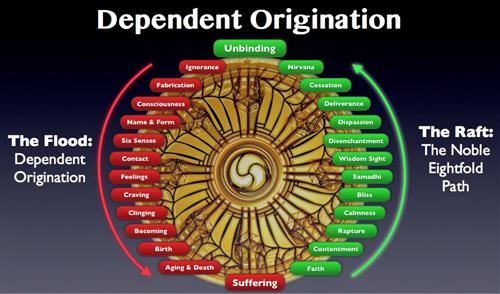









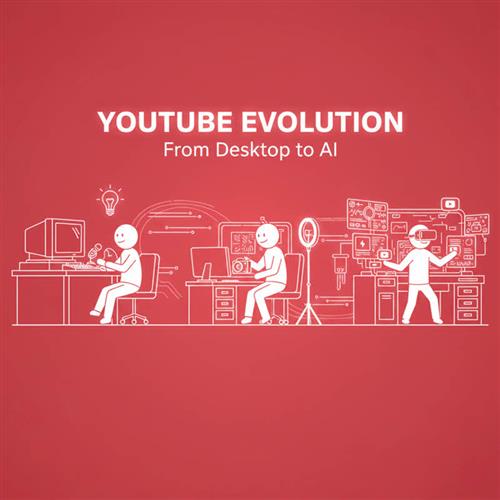
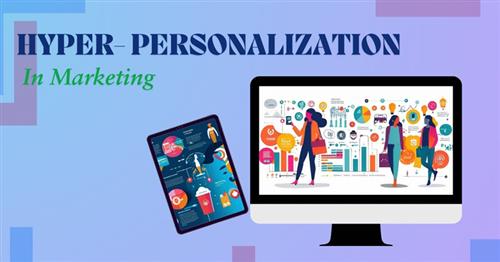
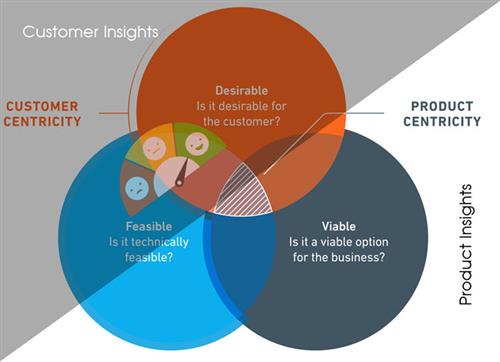
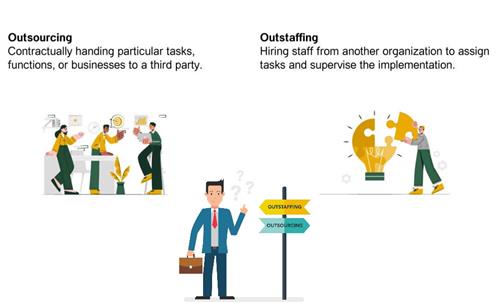



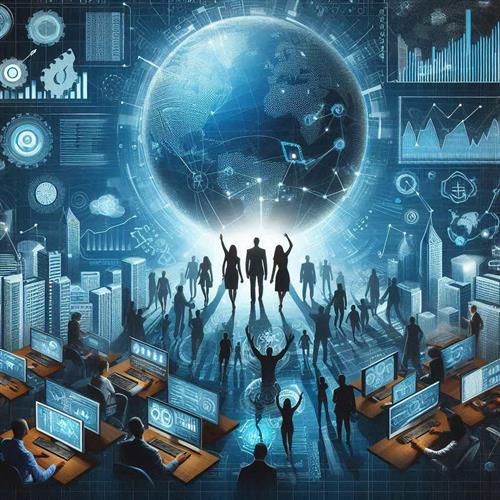











 Link copied!
Link copied!
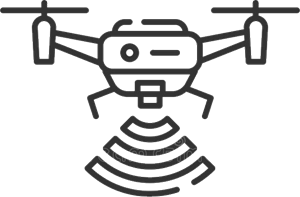 Recently Updated News
Recently Updated News